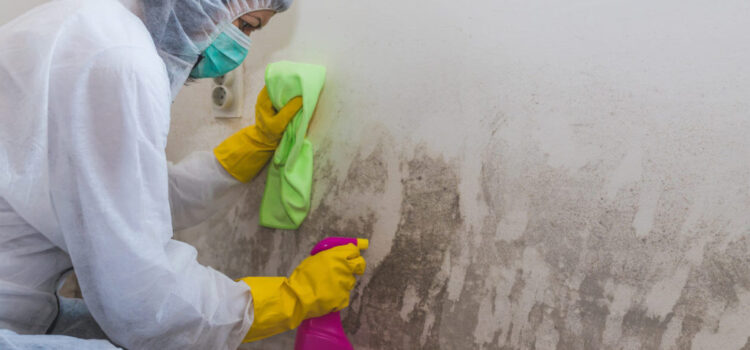
Discover effective mold solutions & inspections with crucial tips: prevent moisture buildup, address leaks promptly, and maintain proper ventilation. Watch for musty odors, and discolored walls, and keep indoor humidity below 60%. Mold exposure can trigger allergies & respiratory issues, emphasizing the importance of proper ventilation. Use natural solutions and protective gear for mold removal, ensuring thorough drying. Prevent future growth by focusing on moisture control and engaging certified mold specialists for comprehensive assessments. Follow these essential steps for a healthier home environment.
Key Takeaways
– Importance of proper ventilation for moisture control
– Benefits of professional inspections for comprehensive assessments
– Effective mold removal methods using eco-friendly solutions
– Preventing future mold growth through moisture management
– Hiring certified mold specialists for thorough remediation
Understanding Mold Growth
To understand mold growth, observe how moisture levels directly influence its development within indoor environments. Mold spores are always present in the air, but they require moisture to germinate and grow into a visible colony. When excess moisture is present in a building, whether from leaks, high humidity, or flooding, it creates the perfect conditions for mold to thrive. Without proper moisture control, mold spores can spread rapidly, leading to widespread contamination.
Effective moisture control is crucial in preventing mold growth. By addressing water leaks promptly, using dehumidifiers in damp areas, and ensuring proper ventilation, you can help create an environment that’s inhospitable to mold. Regularly inspecting and maintaining plumbing systems, roofs, and windows can also aid in moisture prevention.
Understanding how mold spores spread and the importance of moisture control is the first step in combating mold growth within your indoor spaces. By taking proactive measures to manage moisture levels, you can significantly reduce the risk of mold infestations and create a healthier living environment for yourself and your loved ones.
Common Signs of Mold
Detecting mold in your indoor environment requires keen observation of specific indicators that signify its presence. Mold detection can be done by paying attention to musty odors. If you notice a persistent musty smell in a particular area of your home, it could be a sign of mold growth. Visual signs such as discolored walls, ceilings, or floors may also indicate the presence of mold. Look out for dark spots, patches, or fuzzy growth on surfaces.
To prevent mold from thriving in your home, it’s essential to control moisture levels. Keep indoor humidity below 60% by using dehumidifiers or air conditioners. Fix any leaks promptly and ensure good ventilation in areas prone to dampness like bathrooms and kitchens. Regularly inspect and clean areas where mold is likely to grow, such as around sinks, windows, and basements. By staying vigilant and addressing any signs of mold promptly, you can create a healthier indoor environment for you and your family.
Health Risks Associated With Mold
Exposure to mold can trigger allergies in some individuals, leading to symptoms like sneezing, itching, and nasal congestion.
Respiratory issues such as coughing, wheezing, and shortness of breath can also arise due to mold exposure, especially in those with asthma or other respiratory conditions.
Additionally, mold spores can cause skin irritations like rashes and hives upon contact, highlighting the diverse health risks associated with mold presence.
Mold and Allergies
When experiencing symptoms such as sneezing, coughing, or itchy eyes, mold allergies may be the underlying cause. Mold can trigger allergic reactions in sensitive individuals, exacerbating conditions like asthma and sinusitis.
Mold spores, when inhaled, can irritate the airways, leading to symptoms such as wheezing, shortness of breath, and chest tightness in asthma sufferers. Similarly, mold exposure can worsen sinusitis symptoms by causing nasal congestion, facial pain, and post-nasal drip.
If you suspect mold allergies are affecting you, it’s essential to address any mold issues in your environment promptly. Seeking professional help for mold testing and remediation can significantly improve your indoor air quality and alleviate allergy symptoms related to mold exposure.
Respiratory Issues From Mold
If you’re experiencing respiratory issues, mold exposure could be a significant health risk to consider. Mold spores can trigger asthma symptoms such as coughing, wheezing, or shortness of breath in individuals with asthma or allergies.
To address respiratory problems caused by mold, it’s crucial to seek medical attention for proper diagnosis and treatment. Respiratory treatments may include medications to manage symptoms and improve breathing.
Additionally, implementing mold prevention strategies like reducing humidity levels, fixing leaks promptly, and ensuring proper ventilation can help minimize the risk of mold growth in your living spaces.
Mold-Related Skin Irritations
To mitigate mold-related skin irritations, implementing proper ventilation and moisture control measures is crucial in safeguarding your skin health. Mold can cause skin irritations due to direct contact or exposure to mold spores. Skin irritation may manifest as rashes, itchiness, redness, or even swelling.
Prevention involves keeping your living spaces dry, well-ventilated, and promptly addressing any water leaks or moisture issues. If you suspect mold-related skin irritations, it’s essential to seek treatment promptly. Treatment typically involves topical creams or ointments to relieve symptoms and reduce inflammation.
However, the most effective strategy remains preventing mold growth in the first place. Prioritize a clean and dry environment to protect your skin from mold-related irritations.
DIY Mold Remediation Tips
Harness the power of effective mold remediation by implementing these practical tips and techniques. When it comes to DIY mold remediation, prevention is key. Start by fixing any leaks or water issues in your home to prevent mold growth. Ensure proper ventilation in areas prone to moisture buildup, such as bathrooms and kitchens, to discourage mold from thriving. Regularly inspecting and cleaning your gutters can also help prevent water seepage into your home.
For existing mold problems, DIY solutions can be effective if the affected area is small, typically less than 10 square feet. Use a mixture of detergent and water to scrub mold off hard surfaces. For porous materials like drywall or ceiling tiles, it may be necessary to remove and replace the affected area. Remember to wear protective gear such as gloves, goggles, and a mask when dealing with mold to prevent exposure. After remediation, ensure the area is thoroughly dried to prevent mold from returning.
Importance of Proper Ventilation
To effectively combat mold growth and ensure a healthy indoor environment, understanding the importance of proper ventilation is paramount. Ventilation techniques play a crucial role in reducing moisture levels, which is a key factor in mold prevention. By allowing fresh air to circulate throughout your home, you can help regulate humidity levels and create an environment less conducive to mold growth. Proper ventilation also aids in eliminating stagnant air pockets where moisture can accumulate, further reducing the risk of mold development.
Humidity control is another significant aspect influenced by proper ventilation. By utilizing exhaust fans in areas prone to high humidity, such as bathrooms and kitchens, you can effectively remove excess moisture from the air. Additionally, opening windows periodically to promote cross-ventilation can help lower humidity levels and prevent moisture buildup in confined spaces.
Incorporating these ventilation techniques into your home maintenance routine can significantly improve indoor air quality and reduce the likelihood of mold growth. Prioritizing proper ventilation is a proactive step towards creating a healthier living environment for you and your family.
Benefits of Professional Inspections
Professional inspections offer invaluable insights into the condition of your property, providing a comprehensive assessment of potential mold risks and areas needing attention. By engaging professionals, you benefit from their specialized knowledge and skills, which are crucial in identifying hidden mold problems that you may overlook. Their expertise allows them to detect early signs of mold growth or water damage, enabling you to take preventive measures promptly. Through thorough inspections, professionals can pinpoint sources of moisture that contribute to mold development, guiding you in implementing effective mold prevention strategies tailored to your property’s specific needs.
Furthermore, professional inspections give you peace of mind, knowing that your home or business has been thoroughly evaluated by experts in mold detection. Their detailed reports outline actionable steps to address any existing mold issues and prevent future outbreaks, safeguarding your property and the health of its occupants. Relying on professional expertise not only ensures a thorough assessment but also equips you with the knowledge and tools necessary to maintain a mold-free environment effectively.
Effective Mold Removal Methods
To effectively address mold concerns, understanding the most suitable removal methods is essential. When dealing with mold, opting for green cleaning solutions and natural remedies can be highly effective. Green cleaning involves using eco-friendly products that are safe for both you and the environment. Look for cleaning agents labeled as non-toxic and biodegradable to ensure minimal harm.
Natural remedies like vinegar, baking soda, or tea tree oil can also help tackle mold issues without harsh chemicals. Vinegar, known for its antimicrobial properties, can be diluted with water and sprayed on affected areas to kill mold. Baking soda is excellent for scrubbing away mold stains and absorbing moisture, while tea tree oil is a natural fungicide that can inhibit mold growth.
Remember to ventilate the area during cleaning and wear protective gear to avoid exposure. By incorporating these green cleaning practices and natural remedies, you can effectively remove mold while promoting a healthier living environment.
Preventing Future Mold Growth
Considering the environmental conditions that favor mold growth in your home is essential for preventing future mold growth.
To prevent mold from recurring, focus on moisture control. Ensure that any leaks in pipes, roofs, or windows are promptly fixed to eliminate potential moisture sources.
Additionally, proper ventilation in areas prone to dampness, like bathrooms and kitchens, can help regulate humidity levels and inhibit mold growth. Using dehumidifiers in basements or other areas with high humidity can also be beneficial.
Keep indoor humidity levels below 60% to create an environment where mold struggles to thrive. Regularly inspecting and maintaining your HVAC system, including changing filters, can aid in controlling moisture levels within your home.
Hiring Certified Mold Specialists
When seeking solutions for mold issues in your home, engaging the services of certified mold specialists is crucial for thorough and effective remediation. Certified mold specialists have the expertise and training to identify the root cause of mold growth, ensuring a comprehensive approach to remediation that goes beyond surface-level solutions.
These professionals use advanced techniques for mold detection, such as air quality testing and moisture meters, to pinpoint areas of concern accurately.
SEE ALSO: Veneta Assisted Living Facility: Discovering Personalized Care Near Eugene
Conclusion
In conclusion, understanding the signs of mold growth, the health risks associated with it, and the importance of proper ventilation are essential in maintaining a healthy living environment.
Whether you choose to tackle mold remediation yourself or hire professional inspectors, always prioritize effective removal methods to prevent future growth.
By investing in certified mold specialists, you can ensure the safety of your home and the well-being of your family.
Stay informed and proactive in managing mold issues for a healthier living space.











